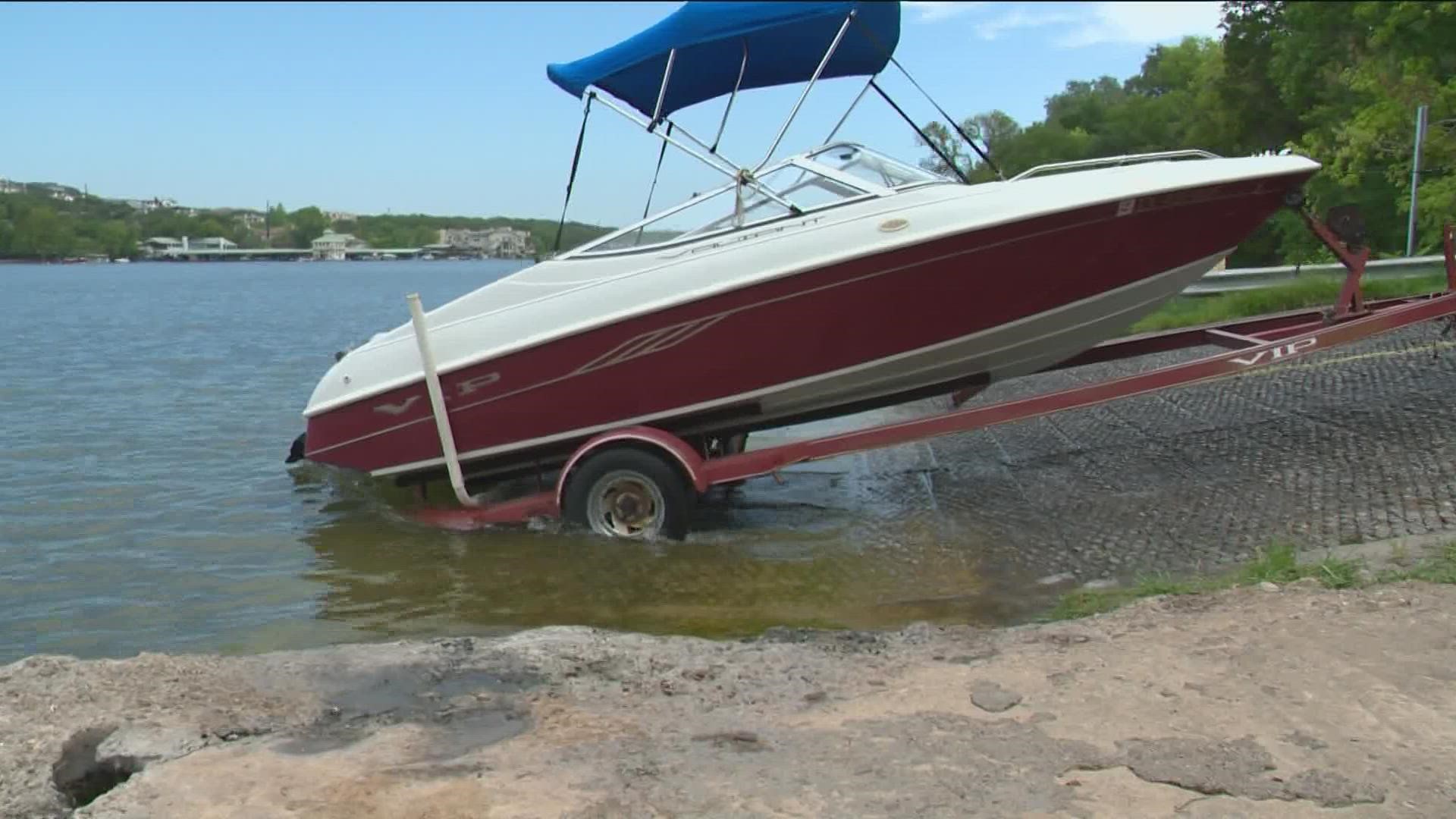AUSTIN, Texas — Lake Walter E. Long in Travis County has been officially designated as "fully infested" with zebra mussels, according to the Texas Parks and Wildlife Department (TPWD).
The lake had already received a "positive" designation following repeated detection of zebra mussel larvae in October 2018 and May 2019. But TPWD said subsequent searches for settled mussels conducted as recently as last year didn't detect any juveniles or adults.
However, earlier this month, biologists with the City of Austin Watershed Protection Department conducted shoreline searches for zebra mussels and found two adults in Walter E. Long, "indicating the presence of an established population," according to TPWD.
"Unfortunately, zebra mussels have now spread to 34 Texas lakes, with 30 now fully infested, but there are far more lakes in Texas that still haven’t been invaded and are at risk,” said Brian Van Zee, the regional director of TPWD Inland Fisheries.
Shawn Smith with Austin Rental Boats said the zebra mussels latch on to nearly anything in the water. In Lake Austin, he showed KVUE, they were all along the shore. He said they also latch on to the dock and boats. He describes zebra mussels shells as "little razor blades."
"I've been cut tons, said Smith. "Usually, on my feet. Me and most of the captains, we wear water shoes and stuff when we're walking around the cove."
Van Zee said boaters taking steps to clean and drain their boats before leaving the lake and allowing compartments and gear to dry completely when they get home can make a big difference.
"Allow your boat to dry for at least a week before you go to another waterbody," said Van Zee.
TPWD said zebra mussels attach to anything left in the water, including boats and anchors, and can survive for days out of the water, often hiding in crevices where they go unnoticed. Additionally, zebra mussel larvae are microscopic and therefore invisible to the naked eye.
Smith did say there is one positive to having zebra muscles.
"It helps clean up the water," he added. "Clear up the water to make it clearer."
However, all the bad outweighs the good.
TPWD said if you have stored your boat in the water at a lake with invasive zebra mussels, it is likely infested and poses an extremely high risk of moving the invasive species to a new lake. The department asks that you call them at 512-389-4848 for guidance on decontamination before moving your boat.
Aside from potentially causing harm to aquatic ecosystems, transporting zebra mussels can cause legal trouble for boaters. The TPWD said transporting prohibited aquatic invasive species is illegal in Texas and punishable with a fine of up to $500 per violation.
Texas boaters are also required to drain all water from their boat and onboard receptacles before leaving or approaching a body of fresh water. Boaters must also remove all invasive plants from their boat, trailer and tow vehicle before leaving a lake.
Watch this video to learn how to properly clean, drain and dry boats and equipment. To learn more about zebra mussels and other invasive species in Texas, click here.
Anyone who finds invasive species in Texas lakes where they haven't been reported before or who spots them on boats, trailers or equipment that is being moved can report their sightings to the TPWD at 512-389-4848 or by emailing photos and location information to aquaticinvasives@tpwd.texas.gov.
Britny Eubank on social media: Twitter
PEOPLE ARE ALSO READING:

